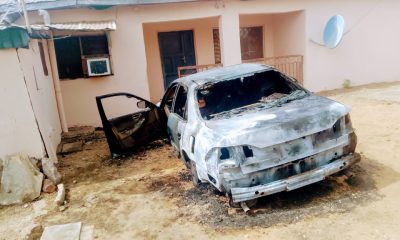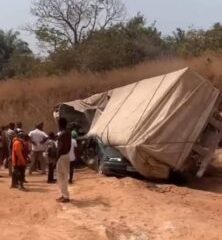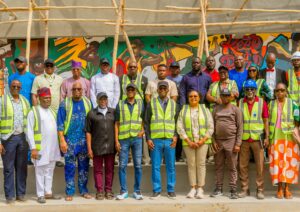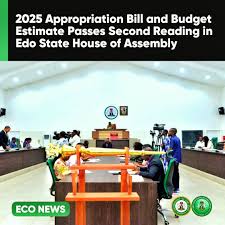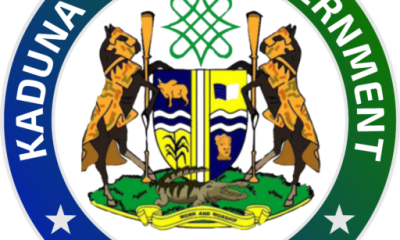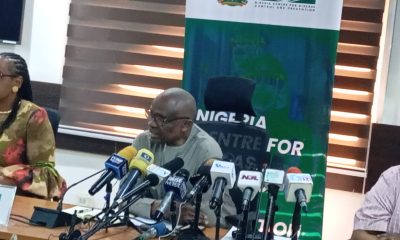OPINION
We Are All MohBad: A Cultural Essay, By Reuben Abati

Beyond politics – Tinubu’s maiden trip to the United Nations General Assembly (UNGA), Atiku Abubakar’s voyage of discovery for Tinubu’s academic records in the United States, revelations regarding how the Presidency lied about the President’s stop-over after the G20 Summit on his way back home at the United Arab Emirates, the increasing failure of the Naira without respite, the proposed strike by organized Labour, and other urgent matters political in the public domain – no other matter has been of greater compelling attention and significance that the sudden, surprising death of 27-year old artist, musician, song-writer, and rapper, Ilerioluwa Oladimeji Aloba popularly known as MohBad or Imole.
No other death of an artist has caught the popular imagination in Nigeria in recent times as his. His departure has been like the eruption of a volcano, with the lava spreading uphill and downhill. When beggars die so said the poet, there are no comets seen. But when Princes die, even the Heavens themselves blaze forth the glory. So it has been with MohBad: a life so short, and yet so impactful, more so in death than in life. He was a prince of his art. What lessons can we learn from this phenomenon that has been thrust upon us by fate and circumstances?
Many years ago, in 2007 to be precise, I wrote a piece on the pages of The Guardian newspaper titled “A Nation’s Identity Crisis” in which touting my credentials as a trained expert in dramaturgy, ethnomusicology and the entire range of theatre arts theory and criticism, having taught the same subjects myself, I argued, with special focus on contemporary Nigerian music at the time that an emergent “Naija, Nija, or 9ja” generation had lost touch with their original roots. I raised questions about a palpable slip into the “age of abbreviations” of talent and everything else, characterized by the emergence of a new generation that was in “a hurry.” It was a comparative essay between the old tradition and the “post-modernist, deconstructive temper of emergent youth culture which as I argued was marked by a Grunge character that suited non-meaning and alienation. That piece I believe should be available online in this season of social media reality.
In it, I praised the old culture, the musicians of the earlier generations – the 60s till the 80s – whose music had a proper complexus of sound, shape, sense, skills and authenticity as major highlight. In contrast, I found contemporary music then to be highly deficient in the same respects, bogged down as it was by populism, commercial appeal, wannabe affectations and a befuddling lack of depth. Accordingly, I predicted that many of the emergent superstars of the period would not survive for long because their talent was not original enough; it was mere hype, propped up by animation and the synthetic piano. In those days, we had artists with swollen heads who thought naively that they had arrived. One of them, Rooftop MC in fact told everyone: “Ori mi wu o, e lagi mo.” I concluded then that “most of the music being produced now will not be listenable in another five years and this perhaps is the certain fate of commercial art that is driven by branding, show and cash.
My intervention stirred the hornets’ nest. For more than two months, the super artistes who felt their ego had been bruised attacked me on the pages of The Guardian and elsewhere. My colleague, Jahman Anikulapo, Arts Editor of The Guardian then, allowed all shades of opinion to flourish. He opened up the pages to a robust debate. Some of those who responded to me included Banky W., El Dee and a host of others. Looking back on those days, I guess I may have been proven right. Many of the musicians I predicted would not make the long-distance run have since fallen by the roadside. Only the truly talented can make that long-distance journey. In the 18th Century in Venice, Italy and Austria, Antonio Salieri was a far more popular composer than Wolfgang Amadeus Mozart in Europe. He got better patronage from the courts. Posthumously, however, Mozart has proven to be the true Amadeus – chosen by God, a true legend, eternally recognized for his genius, not momentary popularity. Salieri remains unknown.
I have given this background to show that the uninformed, the uninvolved who relate to developments in the cultural space, without education, relying on sentiments, may in the fullness of time discover that they may have been driven more by emotions rather than the truth, or a proper, intelligent reflection on the matter at hand. Our departure point is the death, last week, of 27-year-old Ilerioluwa Oladimeji Aloba, a tragedy which has now become a cause celebre. There has been an enormous outpouring of grief from all parts of the world. Processions have been organized in Lagos, Abeokuta, Akure, Benin, Lagos, Ikorodu, Abuja, Wolverhampton, London, UK, Canada and Spain. In New York, MohBad’s image was on the screen at the Times Square. In nearby Ghana, elderly women took to the streets and mourned as they joined others in asking for #JusticeforMohbad – a clear testament to the power of music as a universal, semiotically, unifying referent and language. MohBad’s songs – Feel Good, Ponmo, KoPorKe topped the charts in the UK and elsewhere. He became a greater star in death. Many who have trooped out, asking for justice because they have bought into the narrative that there was foul play in his death, may never have even listened to any of his songs. But his spirit has proven to be stronger in death than in life. In metaphysics, there is this belief that certain spirits are indestructible. Fela. Ayinla Omowura. Victor Olaiya. Fatai Rolling Dollars. Michael Jackson. Bob Marley. In other words, the transcendentalism of the human spirit – but the residue in this matter is the force of good art, further confirmed in the eponymous quote by Horace that “art is long, life is short.” MohBad’ s music seems destined to live beyond him.
It is important for us to ponder on the lessons of his example rather than the attempt to jump to conclusions about the circumstances of his death. The Lagos State authorities have exhumed his body for an autopsy. All the conspiracy theorists who have raised questions about blood that was found in his grave when his corpse was exhumed (those who know insist this is not unusual); those who query why he had to be buried so quickly and in an unbefitting space, those who argue that there is a foul play and that they have an idea about the identity of the killers and their agents should all at this moment clam down and allow the pathologist to do their work, and the security agencies to conclude their investigations. The response of state agents so far is commendable, especially the empathy that has been demonstrated by the Lagos State Government and the Nigeria Police. The creative community has also shown solidarity in a most impressive manner. MohBad is dead and gone. Those who are using his death to fight personal battles, chase clout, gain attention and play games should calm down, and look beyond their own emotions.
There is a MohBad in all of us, a part of him that speaks to the depths of our cravings, outer realities, and fears. Young or old, man or woman, we all wake up every morning hoping that God’s grace will shine upon us. MohBad enjoyed heavenly Grace, no matter how briefly, in life and death. In death, he became a catalyst for the expression of youth angst and despair in Nigeria and elsewhere. Yet he grew up amidst deprivation. It is perhaps true after all that heroes do not wear capes. They could come from the ghettos. MohBad’s mother left his father. He grew up under the wings of a problematic step-mother who has been studiously silent. Good for her. MohBad managed to complete secondary school education and gained admission into a Polytechnic. But he would eventually drop out to pursue his passion: Music. He was brought to the limelight by Naira Marley Records. When he eventually decided to leave this particular label to set up his own: Imole Nation, his travails began. He was hounded from pillar to post by his former Managers.
He reported to the police and even sang about his travails in his records. Many of those now shedding crocodile tears heard his cries for help, even in his songs, but nobody raised a finger to help. We are all sad enough in the same space: a random check will reveal millions of persons who had home troubles like MohBad, work troubles as he had, and who also lived in fear and anxiety like him, and who slipped into depression, and who in the midst of it all, made wrong choices, or just one wrong choice that ends it all. MohBad, young as he was, lived an impactful life, but many in his shoes die unsung. Perhaps if he received help and support, not having to bear so much burden at his young age…Think upon these things.
There are many broken children like him, products of a broken home who manage to find their way in life, but whose background limits their chances. The artist who made good, created good music and a sellable brand has been made a further victim of family circumstances. His shameless father has been all over the place, hugging the limelight, proclaiming himself as the father of a dead son. Could he have done something different to keep the boy alive? MohBad’s mother who abandoned him for 15 years suddenly took over his home in Lekki after his death, to attend to visitors. The young widow, Wunmi who had a five-month son for him was so promptly marginalized, the lady’s sister had to cry out on social media! What I remember from some of the reports is that MohBad’s mother has been whining that her son had promised to give her N5 million before he died. What exactly is she missing? Her son or N5 million? According to the reports, concerned persons like Davido and others have contributed funds for the upbringing of the innocent son that MohBad left behind. What is the guarantee that Wunmi, the boy’s mother would not eventually be driven away and eventually accused of killing MohBad, when an inevitable struggle for money and benefits, who-takes-what begins.? Obviously MohBad was too young to write a will. Nobody expects to die so young. Many are in this same boat. You spend your entire life supporting family. When you die and your children are still young, the vultures in the family and among your friends move in to inherit whatever they can – including the wife you left behind. Family members start the war by accusing your wife and her family of witchcraft. In MohBad’s case, some characters even asked for the DNA of his son.
There are more lessons certainly to be learnt, especially by artistes still within the creative space. A major thread of the MohBad narrative has been how he was reportedly maltreated and dehumanized by his former Manager, Naira Marley: anger over his decision to leave the Marlians, death threats, assault, blackmail and intimidation. MohBad decided to establish his own record label and that even worsened his situation. Disc jockeys and radio stations were allegedly instructed not to play his music. On one occasion, he was physically assaulted, He reported to the police but when he was called upon to identify his assailants, he was the one who failed to show up. He was too scared to talk. Imole’s fans are convinced that his travails reflect their own circumstances: the oppression and victimization of youths by power figures in the public and private arenas. This is why in part they ask for justice. It is in the nature of artists and their craft to inspire passion. We urge caution. Many of the people using MohBad’s death to draw attention to themselves -more have turned the ,tragedy into an enterprise, or to chase clout – that is what most are doing, most cynically should please allow the pathologists and the police to do their work, so we can have proper closure.
I find even more curious the indication that MohBad was treated for an ear infection in a hospital – Perez Hospital – by an auxiliary nurse. The said nurse has since been arrested only for us to be told that she is not even a nurse at the named hospital. The hospital has since denied ever treating him and that MohBad was brought in dead, lifeless. I find this curious. Why would a rising star who has enough money to promise his mother a N5 million gift, and enough money to live in Lekki, allow himself to be treated and administered injection by a random nurse at home? Why did he not visit a proper hospital early? The older musicians that I praised were far more circumspect. The more modern singers who emerged after their generation may not have been as talented. This new generation are the worst that I have seen, though. They can sing and dance, and they have been helped by technology, and increased globalization. But this is nonetheless a unique generation that is on drugs. They are also different because their space has been taken over by occultic groups. Artistes are required to be high on certain drugs and pay allegiance to a cabal. It is most difficult to see that the new generation is permanently high on something. This is one of the biggest threats to talent and tradition in Nigeria today. Our artists do not bother to take good care of their personal health. They prefer to buy diamonds. Flashy cars. Fine homes and those pimpernels who appear as if they have just stepped out of God’s beauty parlour. They travel in private jets too. In due course, their investments take a second seat. There is an emerging greater emphasis on vainglory rather than true art, and a definitive colonial mentality in Nigeria’s cultural space, identified in our 2007 analysis, but now more the case with the ills of drugs and occultism to boot. Who will save our artistes?MohBad’s death is a tragedy that calls for reflection and soul-searching. Is there anything that can be done to assist the multitude in the creative space who have to grapple with issues of relationships, contracts with managers, the devilish context of operation, society’s expectations and the ephemerality and tensions of stardom
OPINION
Ibadan, Okija, Abuja, and the Deathly Fate of Mekunus
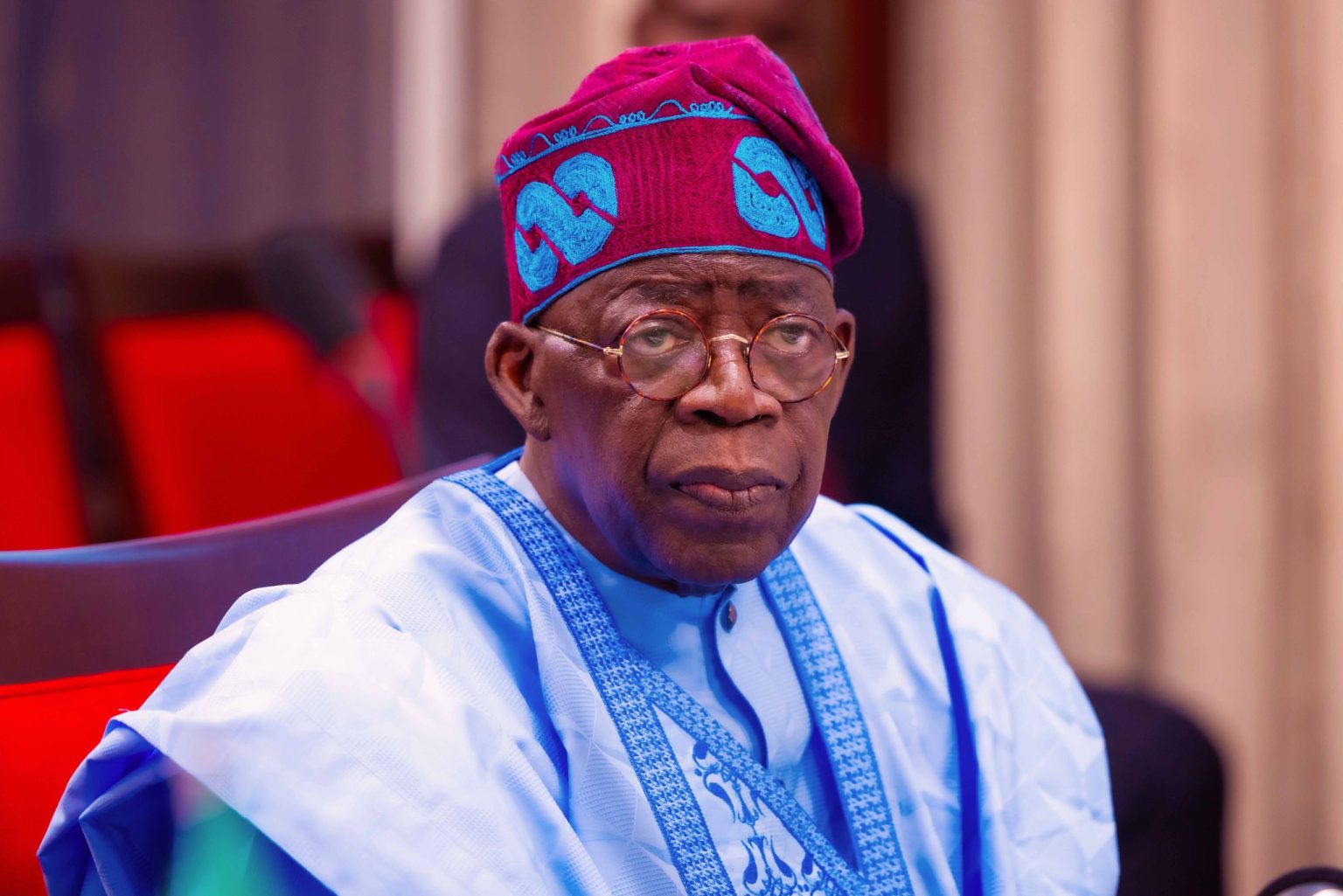
By Tunde Olusunle
Our ambassadors in the national parliament on Wednesday, December 18, 2024, spontaneously broke into a chant, serenading Bola Tinubu Nigeria’s President when he presented the 2025 draft budget to the bicameral body. On your mandate we shall stand gained ascendancy ahead of the 2022 presidential primary of the All Progressives Congress, (APC).
Today, it is probably at par with Nigeria’s national anthem in the circuit of the ruling political party.
Recall the viral video of the Minister for the Federal Capital Territory, (FCT), when he performed to the rhythm on one occasion of his visit to the office of the Chief of Staff to the President, Femi Gbajabiamila a few months ago. The reflex resort of the congressmen to the “mandate” tune on that occasion was in reaction to Tinubu’s joke at the presentation of the budget for 2025.The President had erroneously announced that he was presenting a draft expenditure proposal to the “11th” assembly! He was promptly reminded that we are still in the 10th assembly, in 2024. Tinubu quickly humoured that it could just as well mean that the entire parliament had been reelected for the 11th assembly which begins in 2027.
Tinubu’s budgetary presentation had to be staggered by 24 hours for undisclosed reasons. Reports after the Wednesday December 18 eventual outing, however, suggested that the executive arm of government needed the 24 hours between Tuesday December 17 and the eventual presentation, for very robust, backstage engagements with the legislature. There were feelers to the effect that Tinubu’s budget would be expressly shut down because of his recent propositions on tax reforms which has not gone down well with sections of the country and their representatives.
There are purported reports to the effect that while Members of the House of Representatives were advanced one billion naira each to augment the budgets for their “constituency projects,” Senators allegedly received a minimum of over 100 per cent more under the same nebulous heading. Such largesse should of necessity merit some singing.
While our parliamentarians decked in billowing robes and skyscraping headgears were clapping and caterwauling, giggling and guffawing that Wednesday December 18, 2024, deathly disaster struck in Ibadan, capital of Oyo State. The plan by a nongovernmental organisation led by Naomi Silekunola, a former wife of the Ooni of Ife, Adeyeye Enitan Ogunwusi which proposed to put smiles on the faces of a number of people this yuletide season, had gone awry.
Silekunola and her team intended to gift 5000 children below 13 years of age with a cash gift of N5000 each and offer each of them a food pack. There was a stampede at venue of the programme at Islamic High School, Bashorun District, Ibadan. Poor planning which precluded adequate security cordon, the absence of a standby medical team, among others, precipitated the death of 40 children. Many injured people are still hospitalised.
As though an angel of death was on a yuletide prowl, Okija in Anambra State was its next destination. A magnanimous well-to-do, Ernest Obiejesi, under the auspices of his Obi Jackson Foundation, availed the community of a rice consignment to be shared amongst the womenfolk in the morning of Saturday December 21, 2024, for the commemoration of Christmas. The raw ration came in 10 kilogramme bags of rice, out of which many people received just handfuls in bowls and cups. In the ensuing melee, 36 lives were lost, bodies littering the scene. Many limbs were bruised and broken, they are being patched up in various hospitals.
Despite popular assumptions that the streets of Abuja are paved with gold, the Okija tragedy was replicated, real-time, right at the very heart of Maitama, abode of the nouveau riche. Still in the spirit of the season, the Holy Trinity Catholic Church arranged to distribute food items to the less privileged as Christmas knocks on doors.
The Abuja Command of the Nigeria Police confirms that 13 people including four children died from the surging and trampling at the scene. Over a thousand people have been evacuated from the church, many of the wounded receiving medical attention at the proximal Maitama Hospital, just metres away from the church. Hunger for sure is a deconstructor of geography. Within four days in Nigeria this harmattan season, over 89 lives have lost while foraging for what to eat.
Instructively, a day before the Ibadan tragedy, loyalists and former aides of former President Muhammadu Buhari, flew to his hometown in Daura, to accord him an 82nd birthday surprise. Former Ogun State Governor, Ibikunle Amosun; Secretary to the Government of the Federation, (SGF), in Buhari’s regime, Mustapha Boss; Africa’s richest man, Aliko Dangote, all visited a man largely credited with plunging Nigeria into its seemingly irrecoverable abyss.
Femi Adesina, Buhari’s media minder also sang his boss’ praises on the occasion. He described him as ore mekunu, a friend of the poor, an ascription I found totally out of sync with the realities of his boss’s stewardship. Let’s hope Adesina is seeing on the streets, the hordes of Nigerians, instalmentally transmogrified into pitiable sub- mekunus by Buhari’s eight-year dysfunctional leadership. About 100 Nigerians perished in four day not because of a natural disaster, nor at the theatres of insurgency and military curtailment. They died looking for just that measure of rice to placate their growling stomachs. They died just hours and days after Buhari’s beatification by beneficiaries of his prodigal rulership.
Nigeria has been plunged into the worst economic situation in a whole generation, since the advent of the All Progressives Congress, (APC) at the centre. Poverty has never been as grim and piercing as we’ve witnessed beginning from Buhari’s coming in 2015. Poverty has been ruthlessly weaponised, the poor ready to dance to the drum of a currency note, even a scoop of peanuts. The indicators have determinedly and consistently pointed southwards these past decade.
Inflation is spiralling towards the 35 per cent mark, the unaffordability of basic food items driving mekunus to assured Golgotha in cross-country scrounging, scrambles and stampedes. The same way Nigerians hustle to scoop petroleum products when a tanker falls to the ground, is the same way they throw decorum through perimeters when they are being insulted with sachets of pasta in the name of “palliatives” and “stomach infrastructure.”
The Nigerian Bureau of Statistics, (NBS), is allegedly being bullied by the state to recant on its former announcement that N2.3 Trillion was paid out as ransom to bandits, criminals and kidnappers in the first 10 months of this year. The NBS which has belatedly announced that its systems were hacked, is in good company with the Independent National Electoral Commission, (INEC). INEC’s servers and terrestrial equipment are perennially compromised when election figures tend towards victory for the opposition.
The President recently hailed the peaceful and transparent conduct of the presidential election in Ghana, recommending it as a model for Nigeria. Sadly, it should be the other way round. Other countries should take inspiration from the way we conduct our affairs in Nigeria.
Nigeria prides itself as the giant of Africa. Many African countries look up to Nigeria for guidance, for leadership. Our exploits in the liberation of countries like South Africa from apartheid, and the restoration of peace and democracy to neighbouring Gambia, Guinea, Liberia and Sierra Leone, are well documented. We recently offset our outstanding dues to the Economic Community of West African States, (ECOWAS), totalling over N150Billion.
We do well at bragging and flexing our muscles, but fail where it matters the most. An essential characteristic of Ghanaian elections over the years, is the fact that the ruling party can be displaced by the opposition today. This allows the party so ousted to go re-strategise for the future. What do we do in Nigeria where election results are predetermined, where the electoral process is wholly corrupted, where true winners are intentionally dispossessed of their mandates and encouraged to seek redress in the judiciary? Didn’t a senior government official say in relation to Ghana’s exemplary election that a sitting government cannot be unseated in Nigeria? The stories of the backstage electoral thieveries anchored by INEC over the years will be told someday.
President Tinubu cancelled his official engagements for Saturday December 21, 2024, in honour of victims of the Ibadan, Okija and Abuja tragedies. Nigeria’s leadership must transcend the culinary indulgence and the merry-making occasioned by the yuletide to undertake very imperative introspection. There must be less dangerous, less dehumanising and less deathly avenues for lifting up the poor and indigent in our ranks.
The President is celebrated as some economic whiz kid. Enough of the demeaning, insulting and dubious handouts always purportedly passed on to the less-endowed by ways of very opaque “cash transfers” and the “lorry loads of palliatives.” Can someone please show me a register of transfers to my constituents back home in my community?
That scheme is wholly and totally a scam. Nigeria is not Somalia or Chad and similar countries ravaged by war and hunger, where the United Nations, (UN) and the Red Cross, drop dry rations from hovering helicopters into the hands of starving populations. Nigerians deserve a much, much better deal away from the most despairing status quo. Nigeria is too endowed to wilfully preside over the sustained pauperisation of its people.
Olusunle, PhD, Fellow of the Association of Nigerian Authors, (FANA), teaches Creative Writing at the University of Abuja.
OPINION
Tinubu and the Future of ECOWAS

By Reuben Abati
Two major meetings were held over the weekend that just passed that have implications for the future of the Economic Community of West African States (ECOWAS) and the possible resolution or otherwise of political developments among member-states in the last two to three years, with implications for the future of the sub-regional organisation.
ECOWAS was established in May 1975, when 15 West African states signed the Treaty of Lagos to establish a platform for the promotion of economic integration. This particular treaty was revised on July 24 1993, but the essential purpose of ECOWAS has remained consistent: trade facilitation, free movement of persons and goods, solidarity, promotion of human rights and peace.The sixteenth member joined in 1977, making the membership 16. In addition to its many guidelines and principles, ECOWAS has a general framework which also guides protocols and relations among members. In July 1991, it adopted the Declaration of Political Principles as a cardinal rule, and in 2001, the ECOWAS Supplementary Protocol on Democracy and Good Governance. One of those protocols is the underlying trigger for this commentary, to wit: the principle of customary international law enshrined in Article 2 (4) of the 1945 UN Charter which binds member-states against the use of force as a means of changing governments, in the absence of armed attack or self-defence.
In 1978, ECOWAS signed a protocol on non-aggression against member states and in 1981, members agreed that in the event of any act of aggression against a member, they would come together in mutual self-defence and protect the victim-state to ensure peace, security and stability, by military means if possible and if inevitable, as seen in the interventions of ECOMOG in Liberia (1990) and Sierra Leone (1998). Even the African Union (AU) enabled by its Article 4(h) can be called upon to intervene when the basic protocols have been breached. This however is a slightly complicated area of the subject which we need not bring into this commentary.
What we know is that ECOWAS specifically sees pro-democratic intervention as its bounden duty, but the effectuation of this has been a problem in the sub-region over the years and to cite a recent example, in 2016, when ECOWAS threatened to deploy a standby ECOWAS force in The Gambia to restore the people’s wish if Yahya Jammeh refused to leave office. Jammeh was eased out and a standby force did not have to intervene.
But a turning point came for ECOWAS when the military seized power in Mali in 2020 and 2021, Guinea in 2021, Burkina Faso in 2022, and Niger in July 2023. ECOWAS, with Nigeria’s President Bola Tinubu as Chair, thought it needed to intervene to return these countries to democracy, the rise of military juntas in the sub-region being a threat to democratic consolidation. ECOWAS suspended the states in line with its protocols and proceeded to impose political and economic sanctions. It threatened to deploy troops if it became necessary. This was an act of political miscalculation.
In the four countries, there were civilian protests against ECOWAS, particularly in former French colonies of Burkina Faso, Niger and Mali. The more interesting part of it is that the ECOWAS was accused of being too pro-French. In Burkina Faso, Mali and Niger, the people publicly denounced continued association with France and specifically in Niger, the people openly waved Russian flags and pulled down French flags.
From Senegal to Niger, a wave of rebellion erupted in the former colonies, in what signalled a creeping failure of French relations with its former colonies in Africa. Senegal has had to shut down French military bases to assert its sovereignty, in Burkina Faso the military junta revoked gold permits that had been awarded to French companies, in Niger, the government similarly cancelled the mining permit of Orano, the French nuclear producer that runs the uranium mines in that country.
In addition, Niger revoked its tax co-operation treaties with France as also did Mali, which broke off from its defence accord with France, and its 11 colonial agreements with the former overlord. In the vacuum created by these new realities, Russia and its Wagner group became the favourite partner of former French colonies in West Africa. The Sahel region has been a hotbed of violence and terrorism and naturally, there were concerns about the implications of the presence of Russia and Wagner in the sub-region and the festering anti-West sentiments in the backyard of ECOWAS members. ECOWAS eventually had to review its threat of sanctions, and military action and adopted the options of diplomacy and dialogue.
This achieved little or nothing. In January 2024, Burkina Faso, Mali and Niger announced their decision to quit ECOWAS. They formed the Alliance of Sahel States (AES) as their own confederation as an alternative to ECOWAS. Their departure under Article 91 of the Revised ECOWAS Treaty would become effective on January 29, 2025. The resort to diplomacy, an afterthought by ECOWAS also yielded no results. In July, ECOWAS appointed President Bassirou Faye of Senegal as the mediator with the aggrieved countries. President Faure Gnassingbe of Togo was also sent on diplomatic shuttles to Niger. President Tinubu as ECOWAS Chairman, also sent other envoys to the Sahel.
Barely a month before the January deadline, there was a meeting of Ministers of Burkina Faso, Niger and Mali in Niamey last Saturday, December 14, where they reiterated that the departure of the three countries from ECOWAS, effective January 29, 2025, is “irreversible.” They however also resolved that the three countries would remain visa-free for all ECOWAS countries after the exit. While the latter resolution may alleviate fears about the free movement of goods and services, there is still the residual challenge of insecurity in the Sahel and the threat of a further tumultuous season in that part of West Africa with wider implications for regional peace.
It is perhaps out of this realisation that the Authority of Heads of State and Governments at its 66th Ordinary Summit last weekend, Sunday, December 15 at the State House in Abuja, decided to vary Article 91 of the Revised Treaty and granted the departing trio an extension of six months from January 29 to July 29. This is basically to create room for further diplomatic negotiations in the hope that the three countries can be brought back into the fold. In Niamey, on Saturday, the AES Ministers still made it clear that ECOWAS leaders are too subservient to France.
Without being specific, they may well have been referring to President Tinubu who recently returned from France where he was treated to a lavish and grand reception by President Emmanuel Macron. It remains to be seen whether the AES would reverse itself. It is a long wait but as certain as daylight, July 29, 2025 would soon be upon us. In the meantime, the ECOWAS Commission has been directed to begin work on the necessary withdrawal formalities, while the mediator continues with last-ditch efforts to keep the dream of the founding fathers of ECOWAS alive, giving the AES an opportunity to have a re-think.
It is further instructive that at the ECOWAS meeting of Heads of States and Governments, President Tinubu, Chairman, took time out to praise the just concluded general elections in Ghana and parliamentary elections in Senegal. He even praised Ghana’s Vice President Mahamudu Bawumia of the ruling New Patriotic Party (NPP) who conceded defeat to the candidate of the opposition, President John Mahama of the National Democratic Congress (NDC). He praised the government and people of Ghana for their maturity. This was a subtle dig at the leaders of the West African countries where the military chose to resort to force and aggression. Without a doubt, the rise of military juntas poses a threat to democracy in West Africa and peace in the region. The romance of the juntas with Russia and China dangerously positions the region as a territory for proxy conflicts among major Western powers. It is an ill-wind. ECOWAS needs to do more to persuade the errant countries to restore constitutional order. The leaders also need to reinvent and retool the organisation.
By next July, it will be 50 years since ECOWAS was established. It would be pertinent to ask: how has the body fared? Has it so far fulfilled the ambitions of its founding fathers? Today, only one of those leaders who established ECOWAS in 1975 is still alive. Would General Yakubu Gowon of Nigeria be proud of what ECOWAS has become? What are the challenges facing the body? How can it be reformed? Mutual suspicion among the various blocs: Anglophone, Francophone and Lusophone has been a major issue for ECOWAS: how can the goal of integration be better realised? In 50 years, whatever the challenges may have been, it can be said that ECOWAS has been pivotal in forging cooperation, integration and trade within the region. ECOWAS in 2010 adopted Vision 2020, and also later a Vision 2050 roadmap to deepen the original objectives of the association.
There may have been challenges: insecurity in the Sahel, Boko Haram in the Lake Chad Basin, Ebola, COVID-19 and the emergent threat of military juntas, but on the whole, the main achievements of the body deserve to be celebrated. ECOWAS fought to restore peace in Liberia and Sierra Leone, and has been vocal in insisting on good governance. There are hitches in person-to-person relations within the body, over trade, commerce and space, but the free movement of goods and services has been largely beneficial. ECOWAS ranks probably as the most successful regional economic bloc in the continent, in terms of conflict management.
But ECOWAS has lost steam. It needs re-organisation. It is unfortunate that the same ECOWAS that acted decisively in Liberia, Sierra Leone and The Gambia is now the same body that is now being treated scornfully by a group of military adventurists who have reversed democratic progress in the Sahel. Their effrontery is fuelled by the descent into poverty and anomie in their countries. The clamour for change that compelled the people of Burkina Faso, Mali, Guinea and Niger to embrace the military is simply their frustration with the leaders in those countries. The people seek change and they embrace it in whatever shape it presents itself, with high expectations too, because they no longer trust their leaders who have alienated them and placed a greater accent on their own elite well-being rather than the common good for the people’s benefit.
The people are led by persons who promote injustice, inequality, and nepotism. They rig elections and do not allow the people’s votes to count. When the military intervenes, the people see the intervention as a form of liberation from the shackles of oppression. In Burkina Faso, Niger and Mali, they trooped to the streets in jubilation, almost like the situation today in Syria with the fall of Bashar Assad and the Assad dynasty, one of the most murderous ruling houses in the Middle East which clung to power for 54 years. In Mali in August 2020, when Mali’s President Ibrahim Boubacar Keita was removed in a military coup over allegations of corruption, fraud and electoral violence, the people were joyous. They carried placards saying “This isn’t a coup. It is a Revolution”. There was yet another coup in May 2021. Similarly in Niger in 2023, thousands of people gathered to hail the generals who led the coup in that country. The urgent matter that West Africa needs to resolve is the challenge of good leadership and governance.
There is a need at the organisational level for a re-dedication to the ideals of ECOWAS, and to develop a higher sense of belonging among the member-states and the over 420 million people that make up the region. As ECOWAS steps into its 50th year, it is in urgent need of reform and we need to see the members being faithful. At the last meeting of the ECOWAS Authority of Heads of States and Governments, Omar Alieu Touray, President of the ECOWAS Commission, commended Nigeria for having paid up its community levies for 2023, with the 2024 levy paid up to July this year. He advised other member states to emulate Nigeria’s example. I guess it has become a habit among ECOWAS members to allow Nigeria to do the heavy lifting in terms of funding while others tag along and yet enjoy the benefits of membership.
It is important that all parties pay their levies as and when due. The various structures of the body must be overhauled to ensure equity and deepen trade facilitation. The ideals of free movement of persons across the region should be enhanced. It must be possible for any national of an ECOWAS state to live and work in any of the member states without being subjected to undue discrimination or harassment. The celebration of ECOWAS at 50 must be an occasion for sober reflection and renewal. President Bola Tinubu was elected for a second term as chairman of ECOWAS in July 2024. He would preside over the 50th-anniversary celebrations before handing over the seat in July 2025. He may have listed some of his achievements as ECOWAS chairman at the 66th Ordinary session in Abuja; he would be required to give a fuller account of his tenure and the status of ECOWAS as part of the 50th anniversary. There is a lot more that can be done.
OPINION
Still on State Police

By Dakuku Peterside
When a policy fails to factor in public response to its benefits and drawbacks, success takes the backseat. Ignoring public behaviour often results in poor implementation and unintended consequences.
In Nigeria, a nation grappling with complex and diverse security challenges, the limitations of centralised policing have become glaringly evident.
Rising crime rates, from terrorism and banditry to cybercrime and kidnapping, expose the inadequacies of the current federal system. The call for state police is not just a matter of political discourse; it is a necessary step toward securing the lives and property of Nigerians.This proposal has gained unprecedented traction across regional and political divides, signalling that the time is ripe for this crucial reform.
The urgency of decentralising policing by introducing state police could provide the much-needed local focus to counter insecurity while fostering accountability and community trust. This vision aligns with global best practices and offers hope for a safer and more prosperous Nigeria, where localised and specialised law enforcement can effectively address the diverse security needs of the population.Throughout history, nations have recognised the need for adaptable and localised law enforcement structures. In the early 20th century, the United States established state police forces to address rising crime and extend law enforcement beyond the capabilities of local authorities. The Pennsylvania State Police, formed in 1905, became the first uniformed state law enforcement agency in the U.S., designed to handle challenges that local sheriffs and municipal officers could not adequately address. This included labour unrest in coal mines and maintaining order in rural areas without sufficient local law enforcement. Over time, state police forces such as the Texas Rangers and California Highway Patrol expanded their scope, dealing with issues from highway safety to organised crime. These forces were pivotal in ensuring law enforcement matched the complexities of an industrialising and urbanising society.
The U.S. experience provides a critical lesson for Nigeria: decentralisation enhances law enforcement’s ability to respond to local needs. For instance, during the Prohibition era, state police units were instrumental in curbing illicit alcohol trade in their jurisdictions, a task federal authorities alone needed help to handle effectively. Similarly, the adaptability of state police allowed them to pioneer specialised units, such as cybercrime task forces in recent decades, which have become crucial in tackling modern criminal activities.
Nigeria’s security challenges, including insurgencies in the North and urban crimes in Lagos and Abuja, could greatly benefit from similar localised and specialised approaches. For instance, a state police unit in Lagos could prioritise urban crimes such as theft and traffic-related offences, while a unit in Borno might focus on counterterrorism efforts against Boko Haram insurgents. This targeted approach could lead to more effective solutions than a one-size-fits-all federal system.
Globally, decentralised policing systems offer valuable lessons. Countries like Canada, India, and South Africa demonstrate how local accountability and responsiveness enhance security. Canada’s provincial police forces work collaboratively with municipal and federal agencies to address diverse security needs. In India, state police forces are indispensable in combating localised crimes and maintaining law and order, especially in states with unique cultural and geographical contexts.
For example, Maharashtra’s state police in India have implemented technology-driven initiatives to combat cybercrime, which would be impossible under a rigid centralised system. These systems are bolstered by robust oversight mechanisms to prevent misuse, ensuring their effectiveness and integrity. Nigeria can draw inspiration from these examples, adapting these practices to suit its unique challenges. This global perspective further strengthens the argument for the state police proposal in Nigeria.
The current structure of Nigeria’s federal police reveals its limitations. With approximately 370,000 officers, the police-citizen ratio is about 1:650, significantly higher than the UN-recommended ratio of 1:450. This shortfall is glaring in a nation of over 220 million people, where security challenges vary dramatically across geopolitical zones. The Inspector-General of Police has highlighted the need for an additional 190,000 personnel, yet estimates suggest that Nigeria requires up to 2.5 million officers for effective policing. Over the past decade, crime rates have surged by over 30%, with kidnapping, banditry, terrorism, and cybercrime becoming increasingly sophisticated and prevalent. In 2022 alone, there were over 3,500 reported kidnapping incidents nationwide, underlining the urgent need for localised and agile policing responses. The introduction of state police could help address this issue by allowing for a more targeted allocation of resources based on regional security needs, potentially improving the police-citizen ratio and overall security.
Support for state police has grown significantly among policymakers, security experts, and civil society groups. A growing consensus is that decentralising policing would empower local authorities and enhance operational efficiency. Even state governors from historically divided northern and southern regions have united in supporting state police. One significant highlight of the 147th National Economic Council (NEC) is a new consensus by all state governments on establishing state police. However, this initiative requires a more robust but speedy engagement to align it with the local cultural context, ensuring that it is appreciated and supported by the citizens it aims to serve. Citizen engagement is not just a formality, but a crucial step to ensure public understanding and support for the state police proposal.
Building trust between state police and local communities is a crucial advantage of this reform. Effective local policing initiatives can foster relationships that build trust and cooperation, especially in Nigeria, where the trust deficit is high. Trust is an essential component of crime fighting. Innovative local community-police liaison arrangements and other community-focused programs can strengthen these ties, creating an environment of mutual respect and collaboration. When police officers understand their communities’ cultural and societal dynamics, they are better equipped to address security challenges and maintain peace. The active participation and trust of the Nigerian public in this reform process are crucial for its success.
Concerns about the potential misuse of state police for political purposes are valid but can be systematically addressed. Abuse of State Independent Electoral Commissions (SIEC) by state governors is often cited. This is another reason why extensive and targeted citizen engagement is key before putting the law in place. Safeguards must be designed and implemented to prevent governors from exploiting state police for political and electoral manipulation purposes, personal gain, or to feed their authoritarian appetite.
Laws prohibiting state police involvement in electoral matters and empowering oversight bodies can ensure neutrality. Clear delineation of the roles and responsibilities of state and federal police will also be essential to avoid jurisdictional conflicts. Establishing a framework for collaboration and information-sharing between the two levels of law enforcement will further enhance effectiveness. However, these measures will require careful planning and execution to ensure their efficacy and address potential challenges such as resistance to change and extensive training and capacity building.
Independent regulatory bodies are critical to ensuring accountability and preventing abuse. A State Police Security Commission (SPSC), comprising representatives from civil society, established professional bodies, legal experts, and public security professionals, could oversee state police operations. Regular audits and public reporting ensure transparency. Additionally, a robust judiciary is essential to protect citizens from potential abuses. Judicial reforms that enhance the independence and efficiency of courts would be vital in supporting this transition. For instance, in Canada, provincial ombudspersons have played pivotal roles in monitoring police misconduct, providing Nigeria with a possible blueprint for ensuring accountability.
Strengthening relationships between police and communities through genuine engagement and collaborative problem-solving must remain a priority. Establishing community advisory boards can provide platforms for dialogue and accountability. Actionable trust-building initiatives, such as open-door policies and periodic town hall meetings, should replace superficial slogans like “Police is your friend.”
Addressing insecurity also requires holistic solutions. Investments in education, healthcare, and youth empowerment are essential for tackling the root causes of crime. Integrating vocational training and social services into crime prevention strategies would complement policing reforms, creating a foundation for sustainable security. For example, a similar approach in India’s Kerala state led to a 40% reduction in youth crime over a decade.
Introducing state police in Nigeria represents a transformative opportunity to address the nation’s security crisis. While challenges are inevitable, they should not deter progress. Beginning the decentralisation process will allow for the identification and resolution of potential issues as they arise. The widespread consensus around reforming Nigeria’s policing architecture underscores the urgency of this change. With proper safeguards, political will, and public support, state police can become a cornerstone of a more secure, equitable, and prosperous Nigeria.
A prerequisite is the government’s robust public engagement and orientation programme to get the complete buy-in of all stakeholders, including the National Assembly, the state assembly and the masses. The time to act is now, and this reform must be embraced as a step toward a brighter and safer future for all Nigerians. Establishing state police would signify a shift in policy and a bold reimagining of Nigeria’s approach to security—one that prioritises the people, respects regional diversity, and lays the foundation for sustainable peace and progress.



